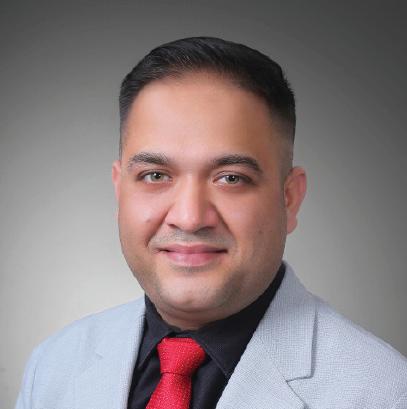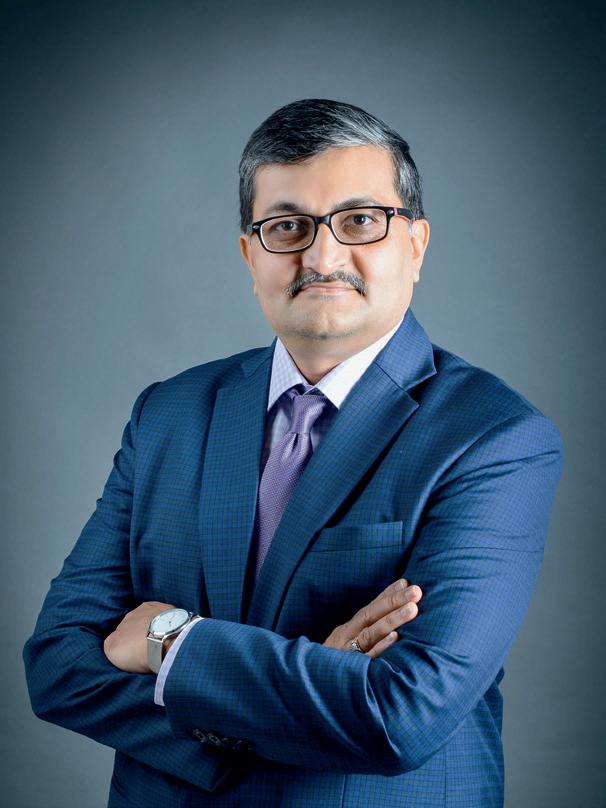






Why are SEBI’s Specialised Investment Funds (SIFs) the Future of Investing?
Why are SEBI’s Specialised Investment Funds (SIFs) the Future of Investing?


Investing just got smarter with SEBI’s Specialized Investment Funds (SIFs). They are the perfect middle ground between mutual funds and high-end Portfolio Management Services (PMS). If you’ve ever wanted more than what mutual funds offer but found the Rs 50 lakh entry for PMS overwhelming, SIFs are here to bridge the gap with a much more accessible Rs 10 lakh minimum, with diverse investment options like gold, real estate, etc.
On December 16, 2024, SEBI introduced ‘Specialised Investment Funds’ (SIFs), a new category blending features of mutual funds and portfolio management services (PMS)1. These funds offer advanced strategies, targeting a wider range of investors while ensuring compliance and transparency.
SEBI’s Specialized Investment Funds (SIFs) blend the advantages of mutual funds and Portfolio Management Services (PMS), offering professionally managed and strategically diversified investments without requiring ultra-high-net-worth status.
SIFs are a specialised category of mutual funds, complying with all mutual fund regulations while meeting additional conditions specific to their investment strategies. They are ideal for investors seeking enhanced flexibility and diverse opportunities without the high entry barriers of PMS.
To maintain clear differentiation, the asset management company must provide SIFs with a distinct identity, separate from traditional mutual funds, ensuring a clear distinction between the offerings of Specialized Investment Funds and mutual funds. Also, the Fund Manager of SIFs must hold the relevant NISM certification.
Let’s understand this through an example: Arjun, a 35-year-old software engineer, has a mutual fund portfolio but seeks more advanced strategies to grow his wealth. While Portfolio Management Services (PMS) offer tailored options, their high entry point of Rs 50 lakh makes them inaccessible. SEBI’s Specialized Investment Funds (SIFs) emerge as the perfect middle ground with a manageable Rs 10 lakh minimum investment.
Unlike regular mutual funds, SIFs provide access to diverse assets like real estate, gold, and infrastructure, along with professionally managed strategies. For Arjun, SIFs strike the ideal balance— offering sophisticated options and broader diversification without requiring ultra-high-net-worth status. This makes SIFs a smart choice for investors looking to improve their financial game.
The ‘Investment Strategy’ is a scheme of mutual funds launched under the Specialised Investment Fund.
1 Notification No. SEBI/LAD-NRO/GN/2024/221; Dated: 16.12.2024
Investment strategies under the Specialized Investment Fund must adhere to the procedure outlined for mutual fund schemes. Investment strategies can be structured as open-ended, close-ended, and interval strategies. Further, the offer document must disclose the subscription and redemption frequency. Fees and expenses for these strategies shall comply with Mutual Fund Regulations.
Specialised Investment Fund may invest monies collected under any of its investment strategies in the following instruments:
(a) Securities;
(b) Money market instruments;
(c) Privately placed debentures;
(d) Securitised debt instruments, which are either asset-backed or mortgage-backed securities;
(e) Gold or gold-related instruments
(f) Silver or silver-related instruments;
(g) real estate assets
(h) Infrastructure-debt instrument and assets.
To ensure prudent and diversified investments, Specialized Investment Funds must adhere to the following restrictions:
(a) Limits on Debt Instruments
(b) Ownership limits in companies
(c) Equity Investments
(d) Investments in REITs and InvITs
(e) Other Restrictions
7.1. Limits on Debt Instruments
• Investment strategies cannot invest more than 20% of NAV in debt instruments (money and non-money markets) issued by a single issuer rated at least investment grade.
• The limit may be extended to 25% of NAV with prior approval from the Board of Trustees and Directors of the AMC.
Exceptions: Government securities, treasury bills, triparty repo on government securities or treasury bills, and certain debt ETFs or funds specified by the Board are exempt from these limits.
• Investments within the limit can include mortgage-backed securitised debtrated investment grade or higher.
• Specialised Investment Funds, under all strategies, cannot own more than 15% of a compa ny’s paid-up capital with voting rights.
• Regulation 7B(1)(a) governs investments in AMC or trustee companies.
• If mutual funds under all schemes own 10% of a company’s paid-up capital, the Specialized Investment Fund under all strategies can own a maximum of 5%
No investment strategy can allocate more than 10% of its NAV to a single company’s equity shares and equity-related instruments.
7.4.
• Combined strategies cannot own more than 20% of units issued by a single REIT or InvIT issuer.
• Individual strategies cannot invest more than 20% of NAV in REITs and InvITs and 10% of NAV in units issued by a single REIT or InvIT issuer.
Exemptions: Index funds or sector/industry-specific schemes for REITs and InvITs are excluded from these limits.
7.5.
All investment restrictions applicable to mutual fund schemes under the Seventh Schedule apply to Specialized Investment Fund strategies.
Comment
The investment restrictions for Specialized Investment Funds (SIFs) impact market dynamics and investor opportunities. They ensure diversification, reducing the risk of overexposure to single entities thereby enhancing portfolio stability. These rules prevent market monopolies and ensure fair participation by capping ownership in companies, REITs, and InvITs. Additionally, the exemption for government securities and spcific funds encourages safer investment avenues, attracting a broader range of investors.
SEBI’s introduction of Specialized Investment Funds marks a significant evolution in the Indian investment landscape. By bridging the gap between traditional mutual funds and high-entry portfolio management services, SIFs offer a flexible yet structured approach to advanced investment strategies. With stringent compliance requirements and diversified avenues, SIFs empower investors like Arjun to access sophisticated opportunities, ensuring transparency, stability, and broader market participation while maintaining regulatory oversight.


Founded 1972


Evolution From a small family business to a leading technology-oriented Publishing/Product company


Expansion

Launch of Taxmann Advisory for personalized consulting solutions

Aim
Achieve perfection, skill, and accuracy in all endeavour

Growth
Evolution into a company with strong independent divisions: Research & Editorial, Production, Sales & Marketing, and Technology

Future
Continuously providing practical solutions through Taxmann Advisory
Editorial and Research Division
Over 200 motivated legal professionals (Lawyers, Chartered Accountants, Company Secretaries)
Monitoring and processing developments in judicial, administrative, and legislative fields with unparalleled skill and accuracy
Helping businesses navigate complex tax and regulatory requirements with ease

Over 60 years of domain knowledge and trust
Technology-driven solutions for modern challenges
Ensuring perfection, skill, and accuracy in every solution provided
Income Tax
Corporate Tax Advisory
Trusts & NGO Consultancy
TDS Advisory
Global Mobility Services
Personal Taxation
Training
Due Diligence
Due Dilligence
Advisory Services
Assistance in compounding of offences
Transactions Services
Investment outside India
Goods
Transaction Advisory
Business Restructuring
Classification
Due Diligence
Training
Advisory
Trade Facilitation Measures
Corporate
Corporate Structuring
VAT Advisory
Residential Status

Naveen Wadhwa
Research and Advisory [Corporate and Personal Tax]
Chartered Accountant (All India 24th Rank)
14+ years of experience in Income tax and International Tax
Expertise across real estate, technology, publication, education, hospitality, and manufacturing sectors
Contributor to renowned media outlets on tax issues

Vinod K. Singhania Expert on Panel | Research and Advisory (Direct Tax)
Over 35 years of experience in tax laws
PhD in Corporate Economics and Legislation
Author and resource person in 800+ seminars

V.S. Datey Expert on Panel | Research and Advisory [Indirect Tax]
Holds 30+ years of experience
Engaged in consulting and training professionals on Indirect Taxation
A regular speaker at various industry forums, associations and industry workshops
Author of various books on Indirect Taxation used by professionals and Department officials

Manoj Fogla Expert on Panel | Research and Advisory [Charitable Trusts and NGOs]
Over three decades of practising experience on tax, legal and regulatory aspects of NPOs and Charitable Institutions
Law practitioner, a fellow member of the Institute of Chartered Accountants of India and also holds a Master's degree in Philosophy
PhD from Utkal University, Doctoral Research on Social Accountability Standards for NPOs
Author of several best-selling books for professionals, including the recent one titled 'Trust and NGO's Ready Reckoner' by Taxmann
Drafted publications for The Institute of Chartered Accountants of India, New Delhi, such as FAQs on GST for NPOs & FAQs on FCRA for NPOs.
Has been a faculty and resource person at various national and international forums

the UAE
Chartered Accountant (All India 36th Rank)
Has previously worked with the KPMG

S.S. Gupta Expert on Panel | Research and Advisory [Indirect Tax]
Chartered Accountant and Cost & Works Accountant
34+ Years of Experience in Indirect Taxation
Bestowed with numerous prestigious scholarships and prizes
Author of the book GST – How to Meet Your Obligations', which is widely referred to by Trade and Industry

Sudha G. Bhushan Expert on Panel | Research and Advisory [FEMA]
20+ Years of experience
Advisor to many Banks and MNCs
Experience in FDI and FEMA Advisory
Authored more than seven best-selling books
Provides training on FEMA to professionals
Experience in many sectors, including banking, fertilisers, and chemical
Has previously worked with Deloitte
Taxmann Delhi
59/32, New Rohtak Road
New Delhi – 110005 | India
Phone | 011 45562222
Email | sales@taxmann.com
Taxmann Mumbai
35, Bodke Building, Ground Floor, M.G. Road, Mulund (West), Opp. Mulund Railway Station Mumbai – 400080 | Maharashtra | India
Phone | +91 93222 47686
Email | sales.mumbai@taxmann.com
Taxmann Pune
Office No. 14, First Floor, Prestige Point, 283 Shukrwar Peth, Bajirao Road, Opp. Chinchechi Talim, Pune – 411002 | Maharashtra | India
Phone | +91 98224 11811
Email | sales.pune@taxmann.com
Taxmann Ahmedabad
7, Abhinav Arcade, Ground Floor, Pritam Nagar Paldi
Ahmedabad – 380007 | Gujarat | India
Phone: +91 99099 84900
Email: sales.ahmedabad@taxmann.com
Taxmann Hyderabad
4-1-369 Indralok Commercial Complex Shop No. 15/1 – Ground Floor, Reddy Hostel Lane Abids Hyderabad – 500001 | Telangana | India
Phone | +91 93910 41461
Email | sales.hyderabad@taxmann.com
Taxmann Chennai No. 26, 2, Rajan St, Rama Kamath Puram, T. Nagar
Chennai – 600017 | Tamil Nadu | India
Phone | +91 89390 09948
Email | sales.chennai@taxmann.com
Taxmann Bengaluru
12/1, Nirmal Nivas, Ground Floor, 4th Cross, Gandhi Nagar
Bengaluru – 560009 | Karnataka | India
Phone | +91 99869 50066
Email | sales.bengaluru@taxmann.com
Taxmann Kolkata Nigam Centre, 155-Lenin Sarani, Wellington, 2nd Floor, Room No. 213
Kolkata – 700013 | West Bengal | India
Phone | +91 98300 71313
Email | sales.kolkata@taxmann.com
Taxmann Lucknow
House No. LIG – 4/40, Sector – H, Jankipuram Lucknow – 226021 | Uttar Pradesh | India
Phone | +91 97924 23987
Email | sales.lucknow@taxmann.com
Taxmann Bhubaneswar
Plot No. 591, Nayapalli, Near Damayanti Apartments
Bhubaneswar – 751012 | Odisha | India
Phone | +91 99370 71353
Email | sales.bhubaneswar@taxmann.com
Taxmann Guwahati
House No. 2, Samnaay Path, Sawauchi Dakshin Gaon Road
Guwahati – 781040 | Assam | India
Phone | +91 70866 24504
Email | sales.guwahati@taxmann.com